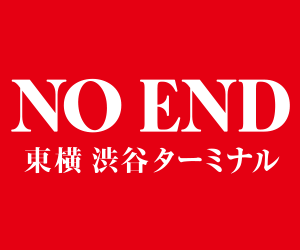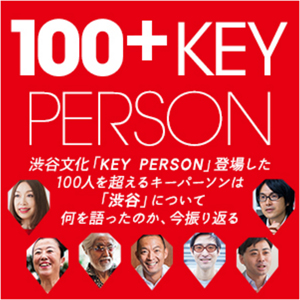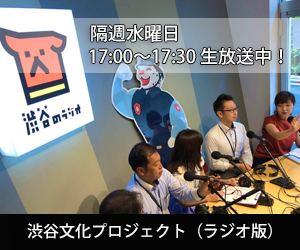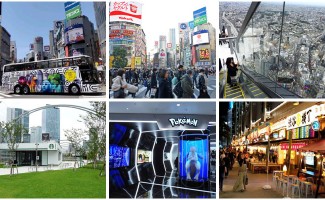 - In the era of food Common Practice - satiation
- In the era of food Common Practice - satiation
It is said that modern Japan is "the time of satiety". There are countless restaurants in Tokyo, and you can choose today's dinner from Chinese, French, American, Indian, and other international dishes, and if you are hungry, you can have lunch at a convenience store in the neighborhood 24 hours a day. . The foods on the market are very rich in quality and quantity, and we are not inconvenienced in foods except for financial reasons. One of the problems that arises is what to eat and how much to eat in an era when you can eat as much as you want. This time, from the movie scheduled to be released in Shibuya, we will pick up works with the theme of "food". Lined up are comedies that focus on the problem of "obesity" because you can eat as much as you want, and documentaries that approach the problem of "genetical recombination" for the purpose of streamlining crop cultivation. On the other hand, the three sensational movements are modeled on a farmer who has achieved “pesticide-free cultivation”. Why don't you use the three books that convey "food" in a variety of ways as an opportunity to rethink your eating habits?
Body fat meter Tanita's employee cafeteria

- title
- Body fat meter Tanita's employee cafeteria
- Screening location
- Shibuya HUMAX Cinema
- Screening period
- From May 25, 2013 (Sat)
- Screen time
- More information about the screening schedule to theater
- directed by
- Toshio Lee
- Starring out
- Yuka, Kenta Hamano, Masao Kusagi and others
From May 25, Shibuya HUMAX Cinema will launch the comedy "Tanita's employee cafeteria for body fat measurement" based on the fact that Tanita's employee cafeteria has become a social phenomenon.
"Tanita Shokudo" is an employee cafeteria established by health measuring equipment manufacturer Tanita for the purpose of maintaining and promoting the health of employees. I read the topic of healthy recipes that use seasonal ingredients and pay particular attention to color and seasoning, and the recipe book released in 2010 set an exceptional bestseller.
The work is inspired by this cafeteria, and the company develops a diet project with the company's luck. Participants are vice president Konosuke who wants to succeed in the project, and employees with a body fat percentage of 40% or more, which is composed of Maruyama of the sales department, Fukuhara of the general affairs department, and Ota of the development department, commonly known as "Himman Three". . Participants who were careless about being unlucky started their diet on the order of the company. However, eventually they find out why they want to lose weight and work hard on their diet.
The day when the world becomes inedible
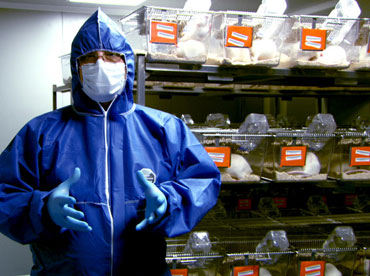
- title
- The day when the world becomes inedible
- Screening location
- Shibuya uplink
- Screening period
- From Saturday, June 8, 2013
- Screen time
- More information about the screening schedule to theater
- directed by
- Jean-Paul Joe
- Production
- Beatrice Camula Joe
From June 8th, Shibuya Uplink will release a documentary "The Day the World Can't Be Eaten" that approaches the reality of genetically modified foods.
In fact, Japan is a major importer of genetically modified foods. It is the world's largest importer of corn, with an annual output of approximately 16 million tons. About 90% of them are from the United States and 88% are genetically modified varieties (2012 USDA survey). What are these corns used for? As raw materials for animal feed, processed oils and processed foods such as corn starch. In Japan, genetically modified foods are required to be labeled, but feeds are not.
In this work, we approach a secret French experiment in which rats are continuously given genetically engineered corn and pesticides for two years (= life expectancy of rats). What is the actual condition of rats that continued to take the same crop from birth to the end of their life? "Genetification is the privatization of living things, that is, the dictatorship control of food," (Director Jean-Paul Joe). What future awaits after the development of cultivation technology that swayed nature's providence in pursuit of efficiency?
Miracle apple
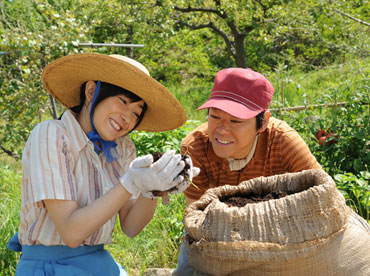
- title
- Miracle apple
- Screening location
- TOHO Cinemas Shibuya
- Screening period
- From Saturday, June 8, 2013
- Screen time
- More information about the screening schedule to theater
- directed by
- Yoshihiro Nakamura
- Starring out
- Sadao Abe, Miho Kanno, Hiroyuki Ikeuchi, Takashi Sasano and others
From June 8th, TOHO Cinemas Shibuya will release a miracle apple, a story of a family who challenged a pesticide-free apple that was said to be "absolutely impossible".
An apple that was introduced to Europe BC and was a well-known fruit in the Roman Empire. Since the middle of the 19th century, pesticides have been introduced for the purpose of controlling pests, and people have repeatedly bred in search of sweet and delicious apples. All the apples we eat today are varieties that have been improved on the premise of using pesticides. Therefore, it has been said that it is "absolutely impossible" to grow pesticide-free apples as delicate fruits that are vulnerable to pests without pesticides.
The model for this work is Akinori Apple Farmer Akinori Kimura. Akinori worked on growing apples without pesticides, thinking of his wife, who had a skin rash due to the effects of pesticides sprayed more than ten times a year and sometimes fell asleep. The "truth" that overturns the common sense that we have found after 11 years of suffering and despair, who have made countless mistakes, faced the opposition of others, and did not give up even if they were forced to live in extreme poverty.
Today, the "miracle apple" is so popular that it sells out in a few minutes. What will the feelings for the wife who entrusted to the bright red apple spread from Aomori all over the country and tell us?

 Body fat meter Tanita's employee cafeteria
Body fat meter Tanita's employee cafeteria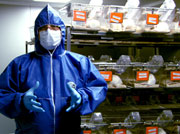 The day when the world becomes inedible
The day when the world becomes inedible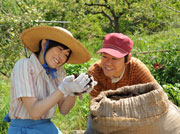 Miracle apple
Miracle apple







